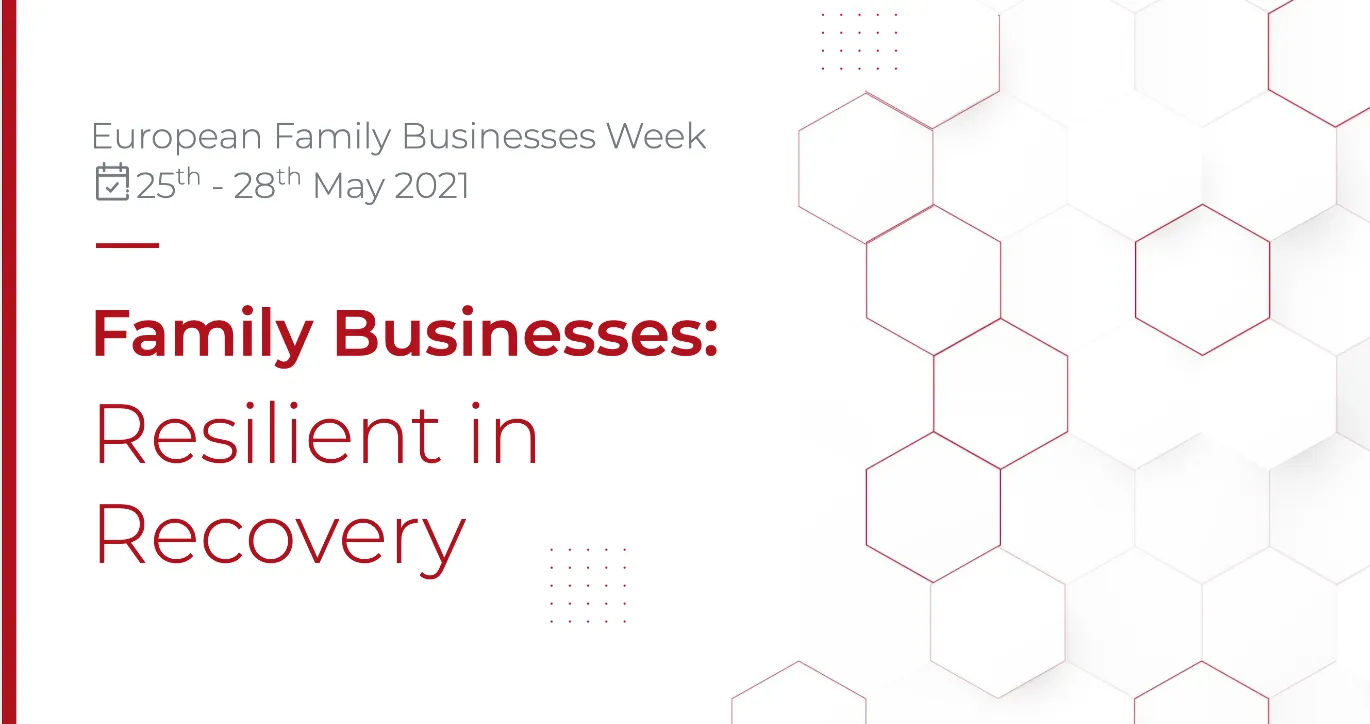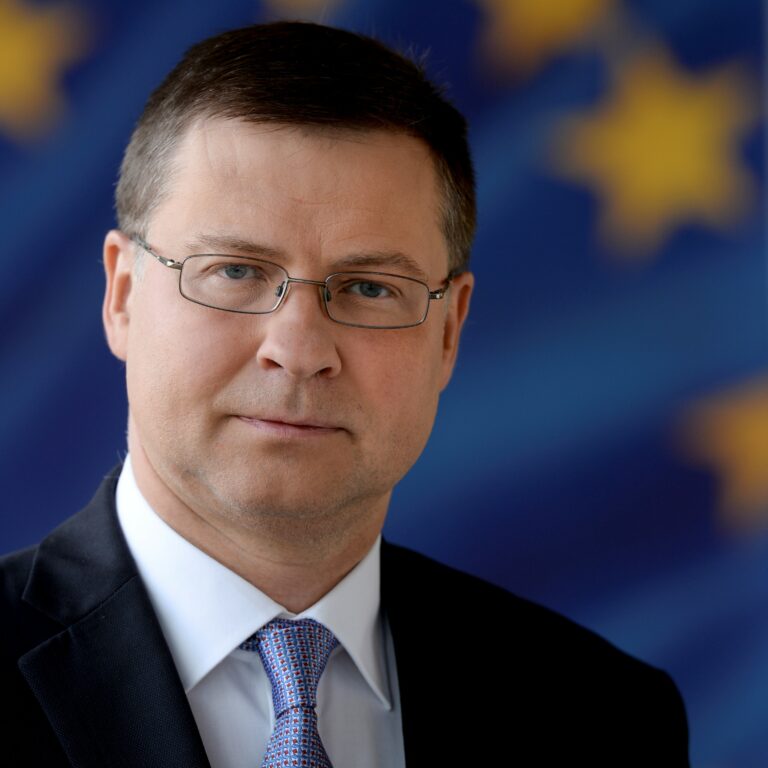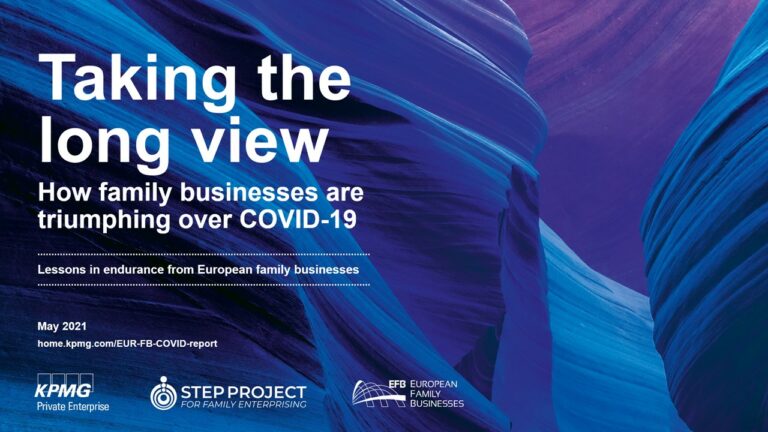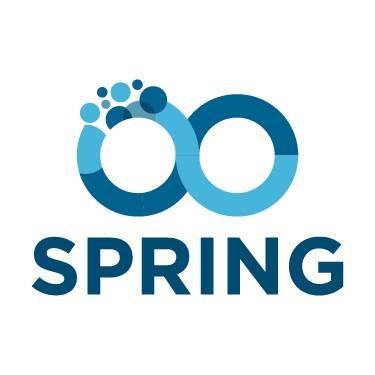European Family Businesses Week-2021
For the first time, EFB’s annual Summit took place online.
Entitled the “European Family Business Week”, the Summit took place between the 25th-28th May 2021. Each day, EFB hosted a discussion, exploring a different topic area with top level policy makers, family business owners and academics to share their expertise with top family business owners from across Europe.
One of the highlights of the 2021 Summit was the interview with European Commission Executive Vice-President Valdis Dombrovskis. With regard to the Commission’s strategy to support companies through EU recovery funds during the ongoing Covid-19 Pandemic, VP Dombrovskis pointed out that all upcoming European Commission measures will target support to Family Businesses, SME´s and Entrepreneurs.
On business transfers, VP Dombrovskis shared a clear message to the audience, “the European Commission has realized the importance of reducing possible barriers to successful Transfers of Business for family businesses.”
Please find EFB’s Press release on Vice President Valdis Dombrovskis’s intervention – “EU trade agenda can help European companies to accelerate their recovery from Covid-19“:
https://www.europeanfamilybusinesses.eu/mediaroom/187/33/EFB-Press-release-VP-Dombrovskis-at-EFB-Summit-2021
Mr. Andrew Keyt, Clinical Professor in Family Businesses, President of Keyt Consulting, delivered his talk on “Legacies that last: Sustaining values in the Next Generation”. Mr Keyt delivered deep insights into the hidden impact of Family Businesses beyond the numbers and financials. He pointed out the huge contributions made by Family Businesses and showed some clear examples and facts considering their importance. Mr Keyt then gave some thought-provoking insights on values as the foundation and one of the main pillars of every Family Business. Furthermore, he reflected on some of the most pressuring challenges for Family Businesses in modern times.
Tom highlighted the fact that Family businesses are making a vital contribution in restarting the economic engine in Europe. In addition, the survey results dispelled some of the myths that surround family businesses, notably their inability to be agile and their overly cautious nature. Tom concluded his intervention by urging family businesses to utilise this moment, post-pandemic, to reflect on their role and contribution to society. Finally, family businesses need to be more vocal about what they do and better communicate in future.
Please get the full Report here:
https://home.kpmg/xx/en/home/insights/2021/05/taking-the-long-view.html
The second session of the day saw a high level family business expert panel on “Regenerative succession for recovery and growth”. First the moderator of the session, Mr Panikkos Poutziouris, presented the SPRING project, Salvatore Tomaselli followed by explaining that that almost every family business has experienced administrative and social difficulties during the pandemic. Ms Rania Labaki pointed out that one of the main characteristics of family businesses is long term decisions making and thinking in generations. Therefore, it would be even more crucial for Family Businesses to clearly define for their own wellbeing, which kind of problems were Pandemic-made and which ones were already in place. Peter Jenner pointed out that family businesses are crucial for the after-Covid-recovery. He closed by noting that the European commission has to focus on a simplified and more state of play orientated ”transfer of business” procedure to keep the family business as the backbone of the EU-economy.
Day 3
In the first session of the third day, Heinrich Lichtenstein presented the latest scientific evidence and research surrounding the topical family business issue of “values and purpose”. John Learmonth followed by sharing the latest research data on the “top ten values and purpose communicated by the most “open” European Family investment companies.” The floor was given to Franz Haniel who gave great insights from his experience as a current board member and family shareholder for many years. He gave fascinating insights on how to ensure that values and purposes that have been created for many years, keep staying in a family business with all employees and shareholders.
In the second session of the day the audience got the possibility to join a high-level panel on two of the most pressing topics for Europe. Regarding the possibilities and risks of the “Green Deal” and the “New Industrial strategy”. Mr Lamberts MEP noted that he thinks the European Green Deal will be the only way for the European economy to maintain its importance in the future. Cost competitiveness would have to be replaced by value competitiveness. Ms Jorna recognised that the decarbonisation effort cannot be made from an office in Brussels. Family Businesses and companies are the key players in reaching the ambitious goals of the Green Deal. The European Commission could via funding, legislation and optimisation of supply chains and competition, support a reasonable sustainable transformation of the European economy in all sectors. Following these statements, Mr. Vetter pointed out that the targets, set by the Commission, would have to stick now unchanged to give businesses a clear way and fix point to follow. Insecurity would have to be avoided at every level to guarantee healthy growth for businesses all over Europe.
Day 4
On the final day of the “European Family Business Week”, Mr Paul Scheffer, Professor of European Studies, Tilburg University gave some very interesting thoughts on “The Hidden Vitality of Europe”. Paul Scheffer’s intervention was primarily focused on the prevalent negative narrative surrounding Europe and its future. For example, European integration is often discussed in the context of decline. Making reference to EFB’s 2019 paper on the future of Europe, Paul explained that if Europe wants to start addressing some of its key challenges, it should begin to take a generational perspective, as family businesses do. Paul suggested that there is a growing tendency in Europe towards protectionism and insular thinking. As such, it is vitally important for Europe to find the counters to these sentiments.
EFB’s summit in 2022 will be held in Berlin, in partnership with our German Chapter Die Familienunternehmer and we look forward to once again meeting our members and business owners across Europe then, hopefully in person.




